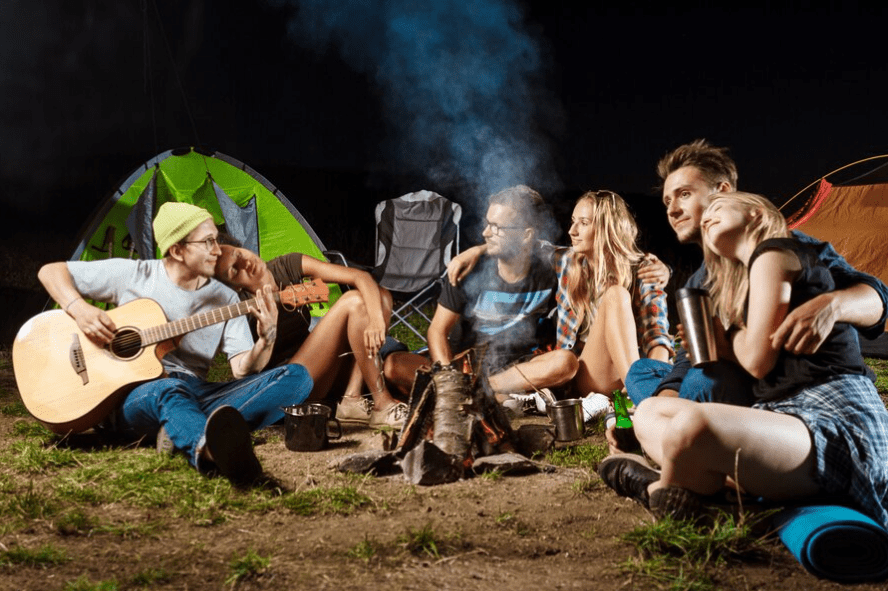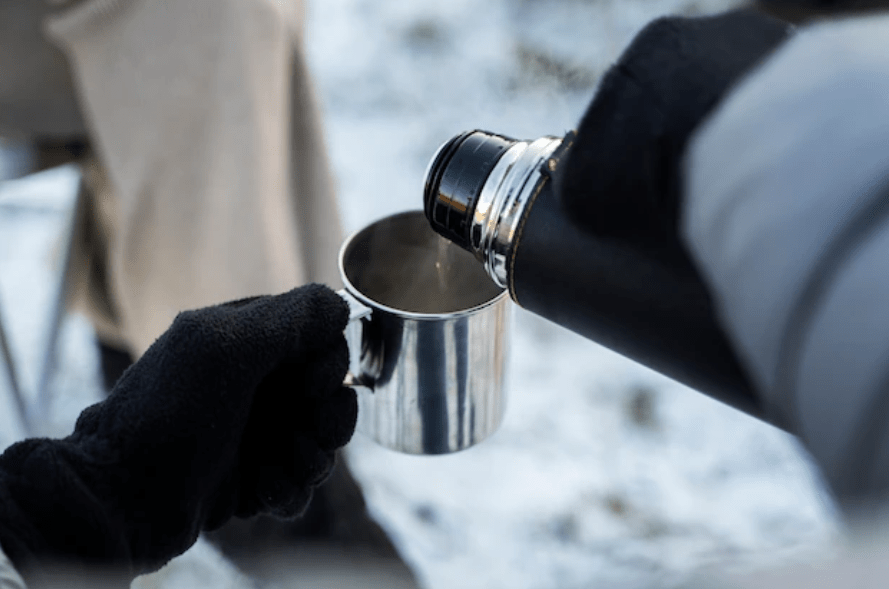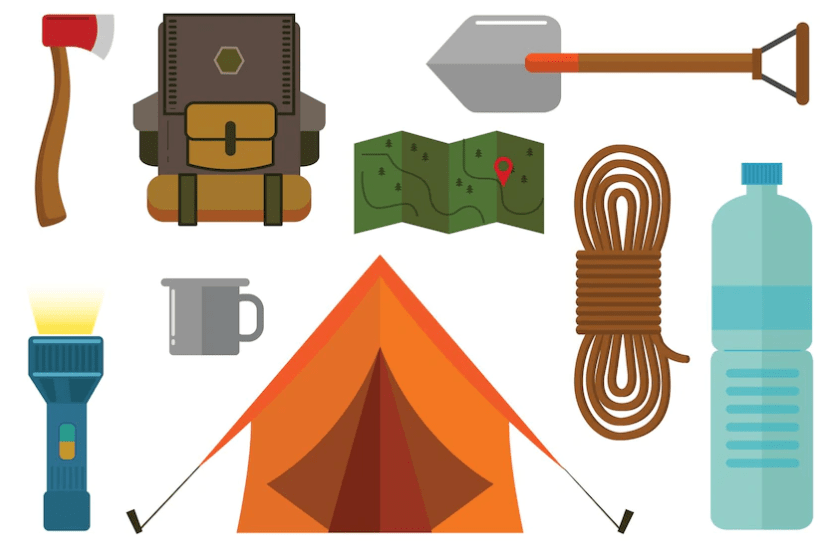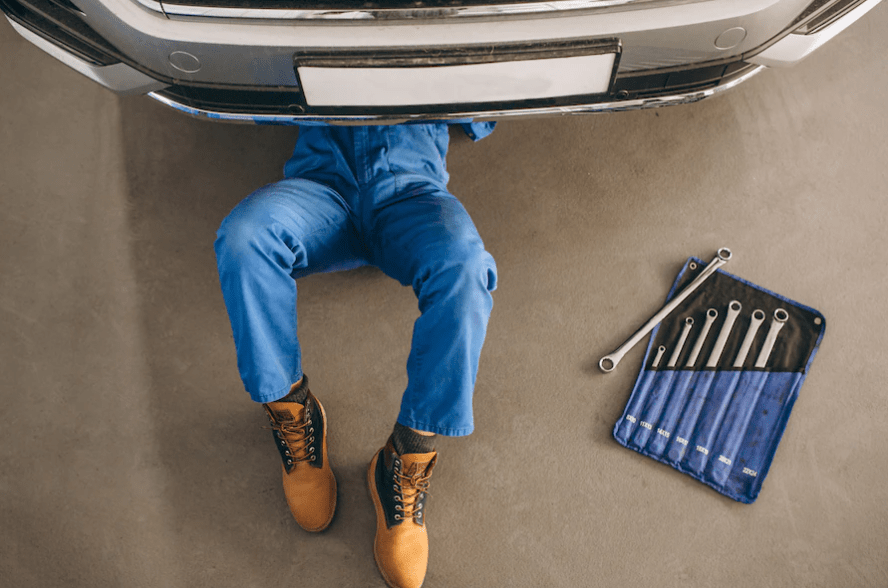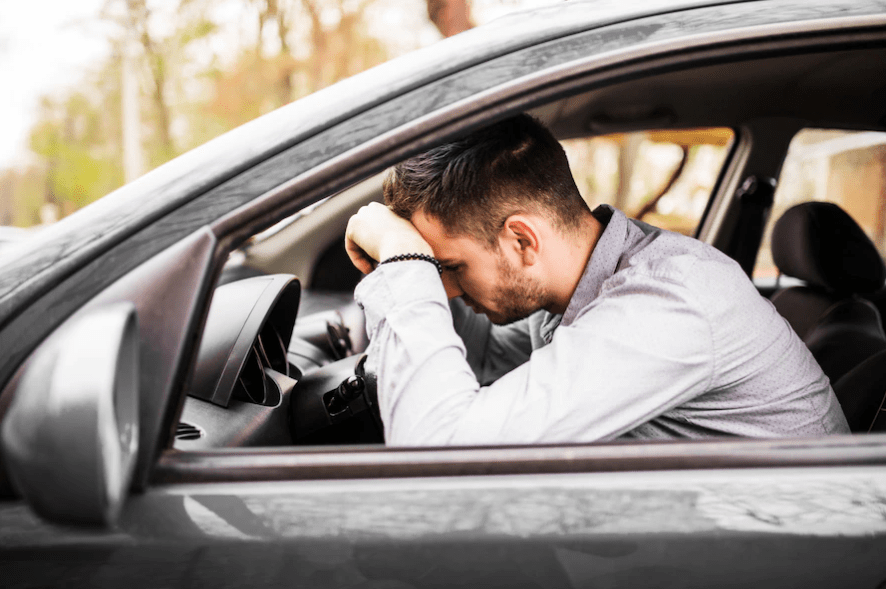A camping campfire must be used responsibly. It must be done properly, maintained, and extinguished to avoid danger.
A camping trip is not complete without a roaring campfire. It doesn’t matter whether you are traveling with a ground tent, a rooftop tent, or with an RV. A campfire is simply part of a successful camping trip.
The warmth of the fire and the soothing sounds it makes transport you to a whole new world.
But a campfire needs to be managed responsibly – done right, maintained, and extinguished to avoid danger.
Table of Contents
The 6 most important safety tips for a camping campfire
There is a lot to consider when you want to make a campfire. You should always observe the safety rules and be prepared for any emergencies. The worst would be if you cause a forest fire with a campfire or injure yourself.
This could quickly become life-threatening or even result in sensitive tightening.
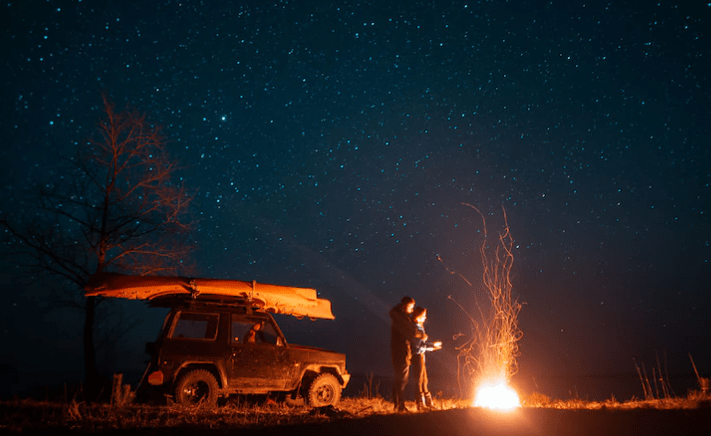
Respect the rules of the campsite
Before starting a campfire, check with park rangers or the owner about the campground’s or park’s fire policy. These rules are constantly changing – sometimes there is a temporary ban, especially when the risk of forest fires is high.
Pay attention to the signs and ask the campsite staff about the current rules for campfires. In very dry seasons, wild campfires are usually forbidden everywhere because the risk of a forest fire is too high.
It is therefore very important that you find out beforehand whether a campfire is allowed or not. If you violate the applicable rules, very high fines can be due!
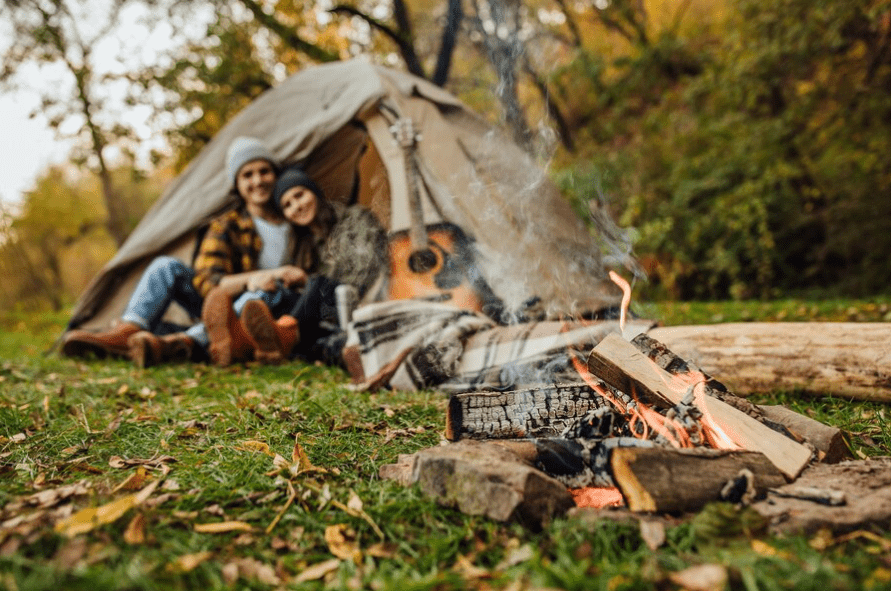
Build a fire pit properly
If the campground has a built-in fire pit, this is the only place you should start your fire.
Before lighting a match, you must clear the pit of all debris.
If you want to camp somewhere more remote and there are no fixed campfire sites (but campfires are allowed), you can start a fire by digging a hole in the ground and surrounding it with rocks. In this way, you prevent the fire from spreading unintentionally to the surrounding area.
Be careful not to build your campfire near low-hanging branches and power lines.
To avoid accidents, a ten-foot radius around the fireplace should be kept clear.
Light the fire properly
With the wood prepared, it’s time to light the campfire.
Use a match or lighter, but never use flammable liquids such as diesel, petrol, kerosene, or lighter fluid.
Make sure the match is completely extinguished before throwing it away. It’s best to throw it in your campfire to be safe.
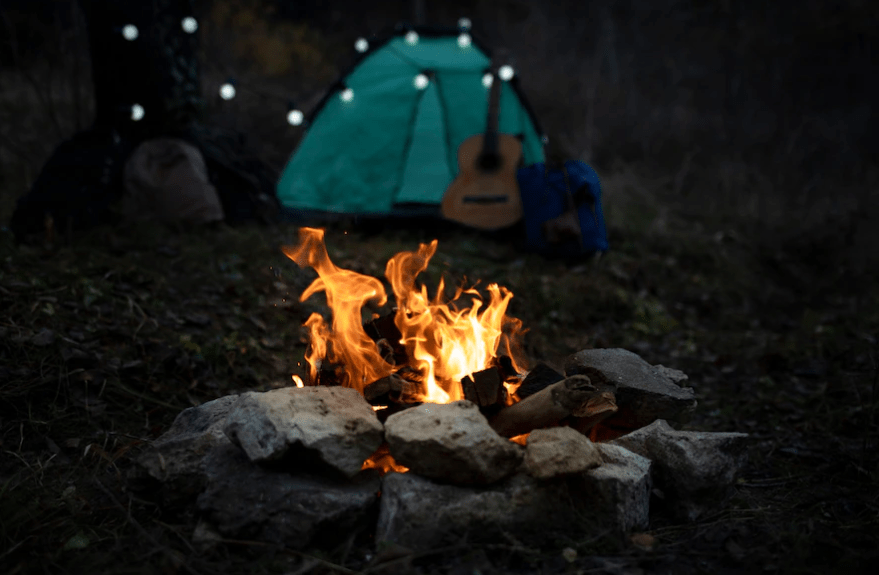
Do not bring your own firewood
You should only use local firewood (which you can buy at the campsite or in nearby shops) to light the fire.
If you bring firewood from home, e.g. from a location 8 hours away, you could bring diseases and tree-damaging insects that could destroy the campsite’s ecosystem.
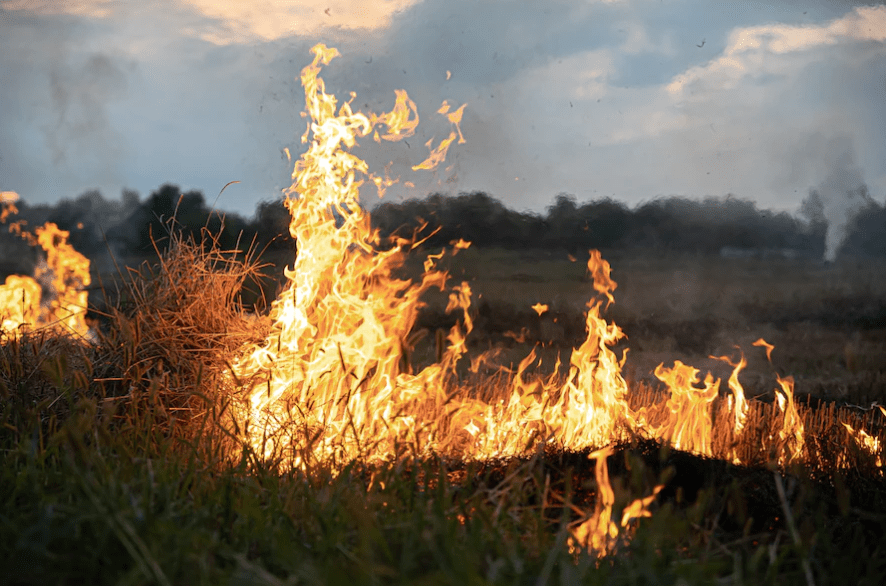
Always have a fire extinguisher ready
As soon as the campfire is burning, flying sparks and jets of flame are to be expected.
Keep everyone at a safe distance and have a bucket of water nearby. It can also be very useful if you have one or more buckets full of sand or dirt nearby in case the fire spreads unintentionally. You can quickly extinguish the fire with sand or dirt.
You can also use a shovel to throw dirt or sand into the flames to contain them.
Or you can try watering the ground a few feet outside the pit to put out any flames that might spring out immediately.
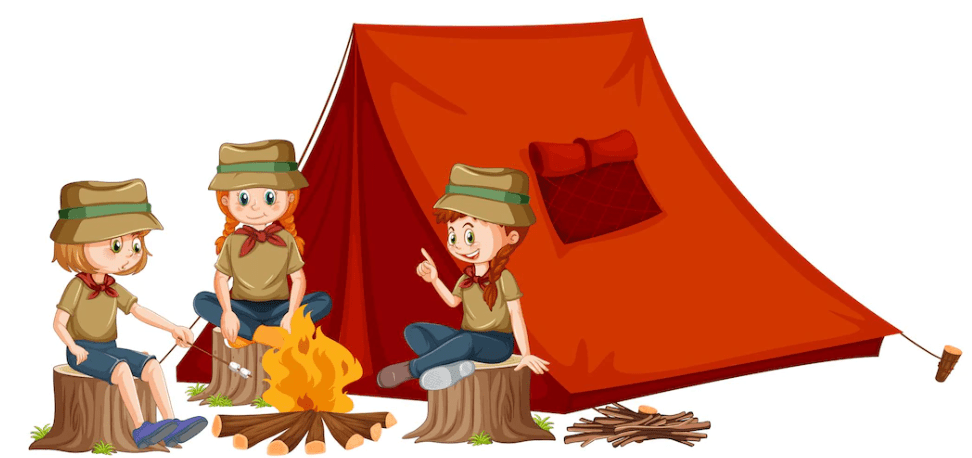
Children at the fireplace
If you have children with you, you should always be very careful and never leave your children alone with the fire.
The danger is very high that children injure themselves at the campfire. Explain to your children how dangerous fire is and show them how to use a campfire correctly.
But you shouldn’t scare your kids. Children love fire… so it is important that you show and explain to them how to use a fireplace respectfully and safely.
Also show your children how to react in an emergency and how they can use the fire extinguisher, for example, to put out the campfire in an emergency.
If you show your children how important it is to treat fire with respect, your children will quickly learn how to react in emergencies.
Follow these simple campfire safety tips to keep it running safely and professionally.

